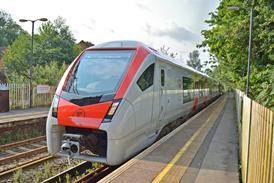IFTRANSPORT Secretary Stephen Byers had intended to bury the bad news about Railtrack by announcing it just before the bombing of Afghanistan commenced, he did not succeed.
The immediate result of his action, which could at worst see shareholders left with nothing, was to enrage the financial institutions. Anthony Bolton at Fidelity Investments said it was ’the worst case of a government mistreating shareholders that I can remember in 30 years as a fund manager’. Commentators agree that the credibility of the British government as a partner in future private funding deals has been damaged.
Having said on June 18 that the rail industry needed ’stability and certainty’, confirming several government denials that Railtrack would be renationalised, Byers was already laying the ground for putting in ’special railway administrators’ back in August. The Rail Regulator, Tom Winsor, was not consulted, and Railtrack stated on October 15 that administration was never ’actively considered at any meeting between Railtrack and the government.’
For shareholders, administration is far worse than nationalisation, where fair compensation for the assets is customary. Railway administration is even worse than a normal insolvency, because assets required to keep the railway running are seized and cannot be sold for the benefit of creditors or shareholders. Railtrack’s Chief Executive Steve Marshall called it ’renationalisation by the back door’. Bear in mind that the company owned not just all the fixed assets of the national rail network, but the land and operational property as well.
The company put into administration on October 7 was Railtrack plc, a wholly owned subsidiary of Railtrack Group. Under the Railways Act 1993, the Railway Administration Order could only be made against the former company, which holds the Network Licence. It did not apply to Railtrack Group, yet other Group assets worth £370m were frozen. Only on October 15 did Byers confirm that Railtrack Group was free to realise the value of Section I of the Channel Tunnel Rail Link operating concession; initial estimates put this at £400m, equivalent to 70p a share.
Despite Byers’ statement to Parliament on October 15 (left), there remains great uncertainty about the future structure and funding of the industry. Meanwhile, decisions on major projects are likely to be stalled. This applies most immediately to the programme to upgrade the West Coast Main Line for Virgin’s Pendolino fleet to operate at 225 km/h, now costed at a staggering £8·2bn, compared to £2·3bn less than two years ago.




















